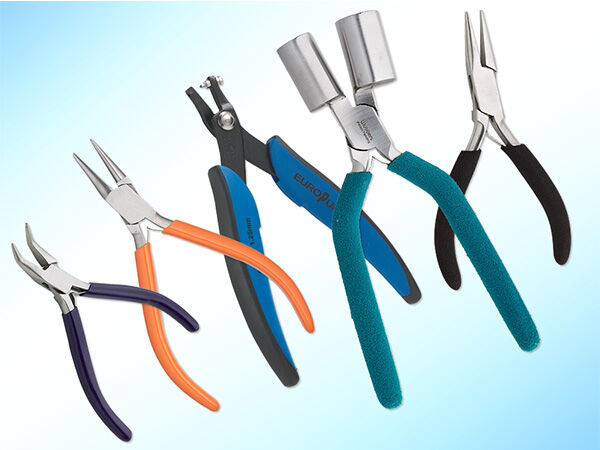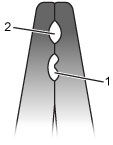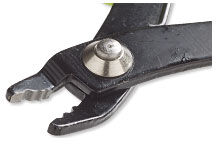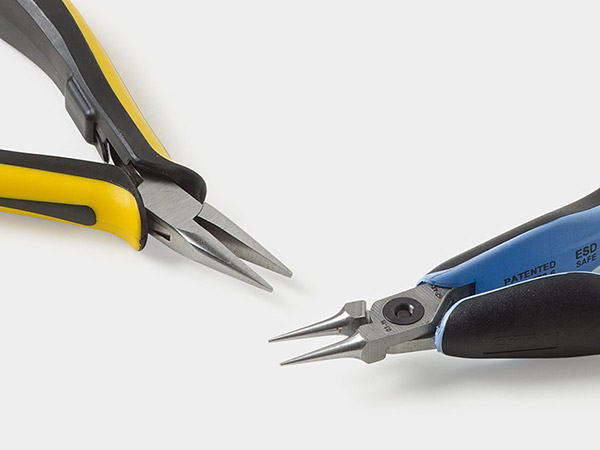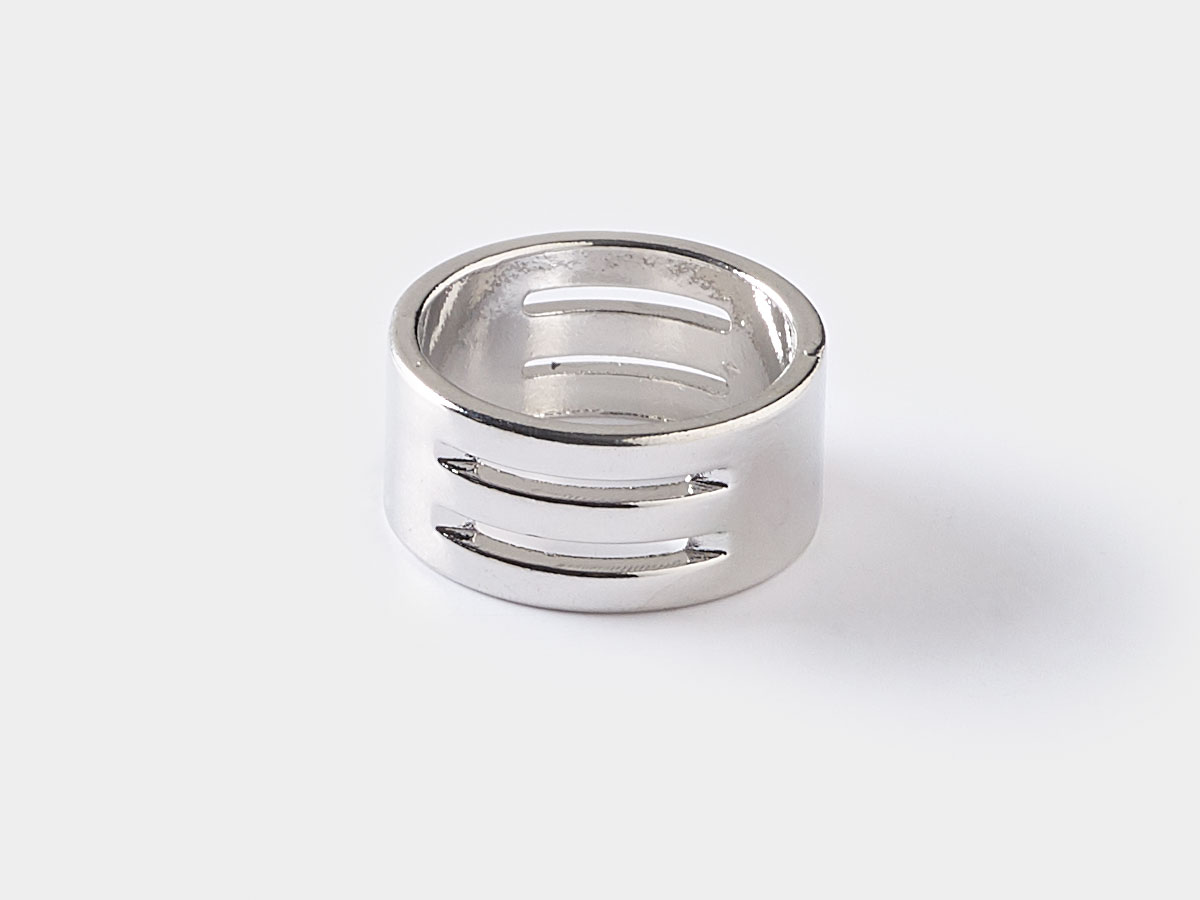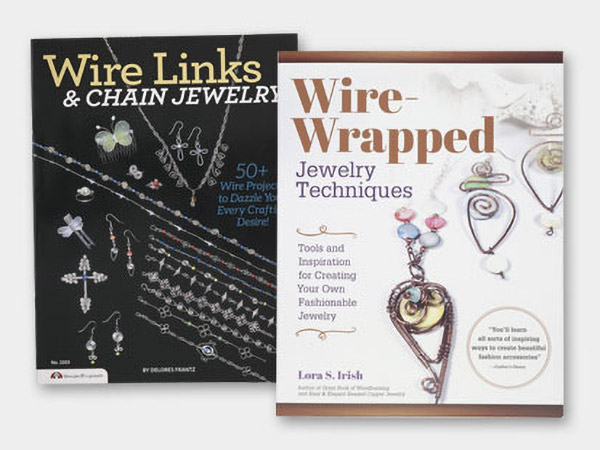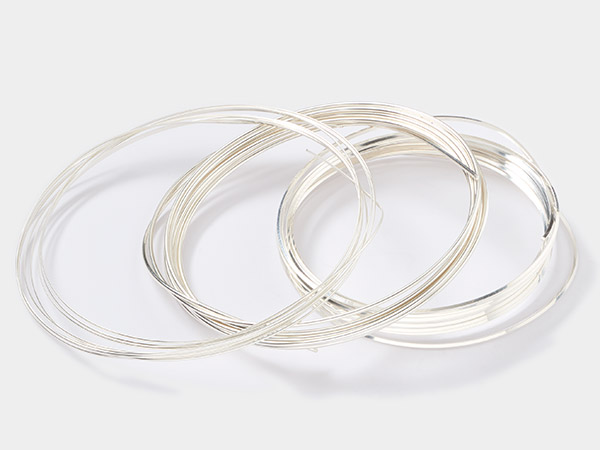A Guide to Jewelry-Making Hand Tools
What are the best pliers for jewelry making? What are jewelry pliers used for? Our guide answers questions like these by showing you the most commonly used hand tools for jewelry-making, the work they are designed to do and tips on each tool. You'll discover how using the right tool for the job will give you more secure crimps, tighter and neater loops and perfect coils.
Standard Pliers
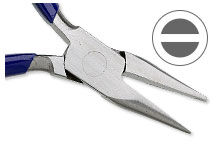
Chain-nose pliers have jaws that are flat on the inside and round on the outside. The jaw tapers from the joint to the tip. The flat inside of the jaw allows for a secure grip on small findings and pieces, such as jump rings. The curved outside is helpful for making small loops and curves on wire. This tool can give you a good bend in the wire and make a precise and permanent angle.
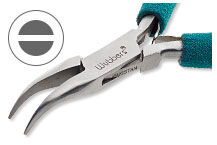
Curved chain-nose pliers (also called "bent-nose pliers") have all the features of standard chain-nose pliers and can be used for the same techniques. The bend in the jaw helps you reach into tight places without blocking your line of vision and can easily access loops or coils without touching the beads next to them.
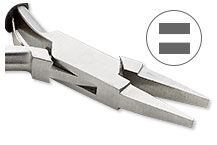
Flat-nose pliers are flat on the inside and outside of the jaws and don't generally taper as much as chain-nose pliers. Use these to securely hold findings, such as when opening a jump ring. Because of their strong grip and ability to hold without marring or scratching, these are useful when drawing or pulling wire and holding shapes while working with wire. The rectangle shape of the jaw lets you create sharp corners more easily than when using chain-nose pliers.
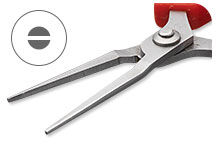
Needle-nose pliers (also called "long chain-nose pliers") are quite similar to chain-nose styles, as they have flat inner jaws and curved outer jaws. These pliers have a longer and thinner jaw that tapers to more of a point at the end. At Fire Mountain Gems, needle-nose pliers are classified as those that have a tip of 1.5mm or thinner. This difference makes them useful for gripping items in especially small spaces.
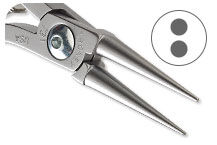
Round-nose pliers have smooth conical jaws. The shape doesn't grip items well, but these are an essential tool for making wire loops. The length and diameter of the jaws vary from brand to brand.
If you choose to grip with round-nose pliers, you may see little dings on the surface of the wire. To help prevent the dings, form your initial shape with the round-nose but save the rest for chain-nose, flat-nose or even nylon jaw pliers.
Specialty Forming Pliers
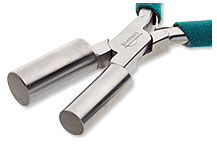
Mandrel pliers, sometimes called bail-making pliers, have jaws that are not tapered. An exception to this is Wubbers® coil-making mandrel pliers, as they have cone-shaped jaws. This type of tool allows you to make bails, jump rings, links and loops in consistent shapes and sizes. The variety of options in size and shape means you can make your own findings for almost any project.
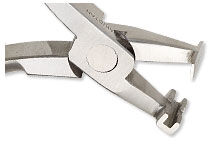
Banding pliers are used to create precise double right-angle bends in square and half-round wire. This tool is essential for a professional look when wrapping multiple wires together, such as in wire bangle designs. Each set of banding pliers is designed to work with a specific range of wire gauge.
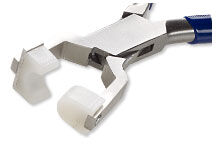
Bending pliers gently shape wire and sheet metal into a uniform curve or bend. The shape the metal takes is predetermined by the shape/style of the pliers. This type of tool is especially helpful when shaping cuff bracelets and similar designs.
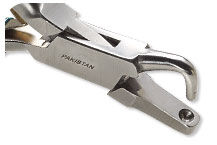
Dimple pliers provide a way to add texture, patterns and decorative marks on sheet metal without breaking out your hammer and dapping tool. These pliers can also be used to create a guide for your drill bit or punch pliers.

Shape pliers that have two different shapes in the jaws are used to form wire in more specific ways than standard pliers. The shape is dependent on the combination of jaw shapes. Examples are concave/half-round, round/flat, round/concave and more. Use these types of pliers to create your own findings, in intricate wire-wrapping projects, and when you find you need a better grip while making loops.
Specialty Task Pliers
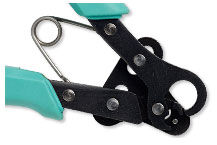
1-step looper pliers: This amazing tool creates a simple loop and trims the extra wire in one fell swoop. You will be able to create consistent loops on wire, eye pins and head pins without having to switch between round-nose, chain-nose and cutting pliers.
Crimping pliers are specifically used to create rounded and secure crimps, instead of just flattening the crimp bead with standard pliers. This tool uses a two-step process; the first separates the beading wires and the second securely closes the crimp with a professional finish.
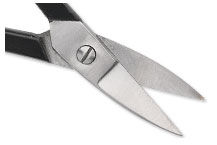
Cutting tools are essential for almost every type of jewelry-making project. There are cutters for wire, metal sheet, thread, beading wire and more. Particularly necessary are flush cutters, which provide a smooth, professional finish to your metal projects. Check out "Everything You Need to Know About Jewelry-Making Cutters" for more information on the options you have.
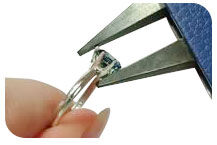
Gem setting, (or stone-setting) pliers are specifically designed to apply pressure to prongs at the correct angle. Using this tool when setting or tightening your stone helps to prevent damage to the stone, damage to the setting and crooked stones.
View the ''How to Use Gem Setting Pliers'' how-to video and step-by-step illustrated instructions to see this tool in action.
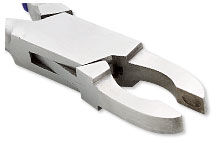
Loop-closing pliers smoothly close loops, jump rings, bracelet links and more without causing a shape change. The jaws have a groove which allows for the curvature of differently sized loops and prevents distortion and scratching.
View the ''Using Loop-Closing Pliers'' how-to video and step-by-step illustrated instructions to see this tool in action.
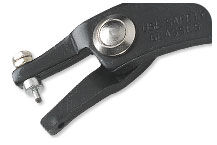
Punching pliers are used to create holes in jewelry materials. Different pliers can be used on sheet metal blanks, leather and more. Using hole punch tools can help with consistency of shape and placement when creating connection, riveting or decorative holes.
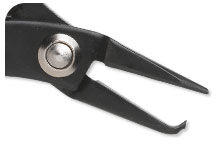
Split ring pliers are designed to more easily open split rings without distortion. Use this tool to save your fingernails and the shape of the split ring.
View the ''Using Split Ring Pliers'' how-to video and instructions to see this tool in action.
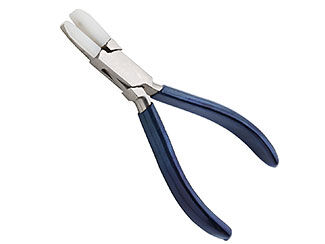
Nylon jaw pliers are manufactured for working with metal wire and other materials where extra finesse is required. The nylon jaws precent nicks and chips in the wire coatings. They can also be used for anodized or enameled pieces.
Multipurpose Tools
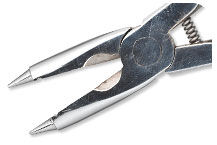
The Beader's Delight and the MULTIPLIERS™ line of pliers lets you perform up to four different actions without switching out your tool. This can save you time, frustration and dropped tool and materials.
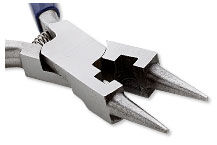
Rosary pliers are a perfect two-in-one tool—round-nose pliers and side-cutting pliers in one handy tool. Round-nose pliers create loops and curves. Side-cutting pliers trim metal or beading wire. This is a great tool for highly repetitive work such as making rosaries (hence the name) or handmade chain.
Shop for Your Materials Here:
Have a question regarding this project? Email Customer Service.
Copyright Permissions
All works of authorship (articles, videos, tutorials and other creative works) are from the Fire Mountain Gems and Beads® Collection, and permission to copy is granted for non-commercial educational purposes only. All other reproduction requires written permission. For more information, please email copyrightpermission@firemtn.com.

